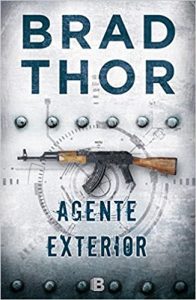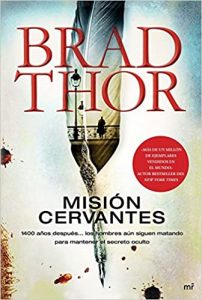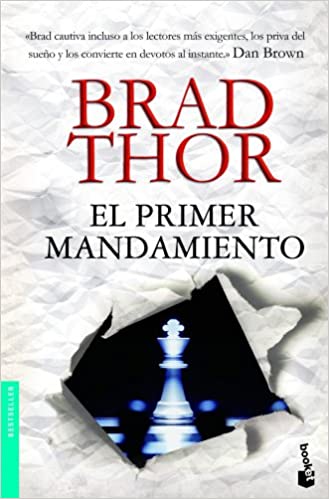The translation from reality to fiction is a necessary hook for certain genres to work. The black or detective novels the more link they offer with that sordid reality of evil, the better. The same happens with political suspense and intrigue, with those stories of espionage, conspiracies or the dark economic interests that move the world beyond the flags.
Y brad thor He is one of the most established writers of this genre, capable of awakening the conspiratorial in the reader or even ending up tracing unfathomable political, economic and geostrategic paths that we all intuit, but that almost never come to light in our daily reality.
On more than one occasion this translation into the fiction of capital affairs has led Brad Thor to attempts at ostracism when not direct attacks. We can say that this author is, together with Daniel Silva, and some other author, the equivalent of un Le Carré updated since the Cold War to the no less cold current international politics. All of this without the intention of retiring a Le Carré who remains as relevant as ever.
The truth is that Brad Thor's literary impact is constantly growing and already reaches many countries in the world. A writer like him, who is prodigious in the media and who is sought after by these same media for his solvency in politically involved topics and for his natural hook, is assured of a niche of readers eager for new installments on the great political enigmas. of the world.
Top 3 Recommended Brad Thor Novels:
Outside agent
International politics is a big game, also in literature. And authors like Brad Thor know how to make the most of this type of approach to present a singular intrigue that moves between the appearances of diplomacy and the dirty game that undermines that theater of understanding between countries, all staged around Islamic terrorism .
In the specific case of this book Outside agentWe are moving in a current war zone, the cradle of the Islamic state in Syria. Specialized agents and US politicians share a floor where a direct attack operation against an important ISIS leader is centralized.
What seemed to be an operation executed to the millimeter, a new goal for Western democracy collapses when the safe house is attacked by terrorists. The violence used on those who are there, spread to the whole world through social networks, reveals the weaknesses of an operation that takes lives ahead of its disastrous failure.
How did ISIS know that the team was in Syria? Doubts about possible leaks unleash a cascade of harsh disapprovals, internally among the US political class and abroad with the countries suspected of having stolen the information.
Scot Harvath, as a special agent for these types of avatars, must assemble his own team and assume the risks of a new operation in a stormy and destabilized situation, where security is a forgotten premise.
What Scot and his team can get to know, amid the tangle of information that flows without ever knowing what is true and what is false, will jeopardize the international relations of great powers, with the risks of new ones. world conflicts.
Scot and his team risk their lives between that crossfire, the real of the weapons that fire on them and the one that looms at the political level, with opposing and buried interests that move the protagonist between confusion and bewilderment, where only by forcing situations at the edge can reveal some truth in everything that is happening.
Mission Cervantes
Imagination at the service of exhaustive knowledge on a subject as suggestive as politics in its most internal sphere, where our world is cooked at the time of unspeakable political secrets, ends up being an inalienable menu for any reader.
In the case of the Spanish reader, knowing that in the plot we can discover the prominence of Don Quixote as a book that houses a great secret for those who know how to discover its most cryptic reading, this novel acquires much more suggestive tints.
The appearance of the character of Scot Harvath points to the protagonist of many great stories, transcending that level of a world-renowned character.
The author composes a literary puzzle between the vertices of President Jefferson, Don Quixote's own book, and good old Scot Harvath, in whose resolution we invest a reading time that quickens our pulse and that leads to fascinating turns towards a memorable resolution.
The first commandment
At the time of all-out war with the terrorists who believe that by threatening the civilian population they can achieve their evil objectives, this first political commandment of "you will not negotiate" is a declaration of intentions that allow a Machiavellian action to defend the world from this new focus of evil.
Scot Harvath knows this command well. The problem is that the terrorists also know it, so they go on to act by attacking the most sensitive, that which would never be the subject of negotiation. When the terrorists know Scot Harvath's closest environment, they know perfectly well how to cause damage to show that if there is no negotiation their only response will be cruel revenge.
Scot has no choice but to deploy all his ability to discover the focus of the threat that looms over him and that continually hits him, convinced that he can reduce it and defeat it.
An international thriller that starts from the personal notion of the protagonist, a suspense novel that splashes the reader from the empathy of the protagonist and from the generalized fear of terrorists who only seek total destruction.



